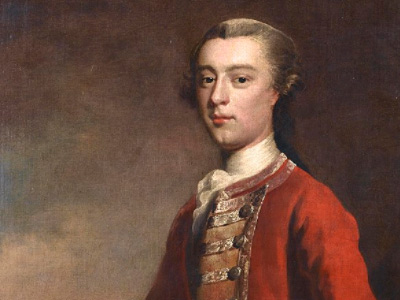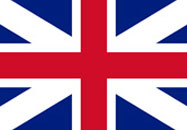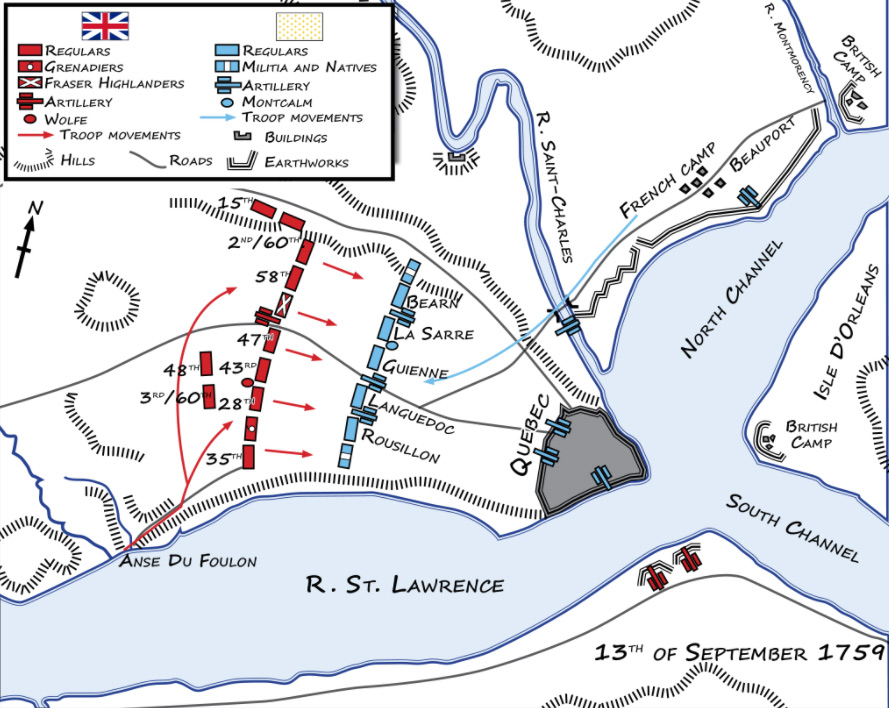James Wolfe (1727-1759)
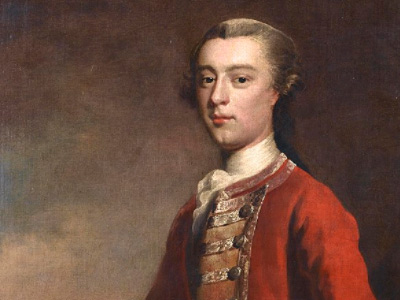
Major General James Wolfe (2 January 1727 – 13 September 1759) was a British Army Officer, known for his training reforms but remembered chiefly for his victory over the French at the Battle of the Plains of Abraham in Quebec in 1759. The son of a distinguished general, Edward Wolfe, he had received his first commission at a young age and saw extensive service in Europe where he fought during the War of the Austrian Succession. His service in Flanders and in Scotland, where he took part in the suppression of the Jacobite Rebellion, brought him to the attention of his superiors. The advancement of his career was halted by the Peace Treaty of 1748 and he spent much of the next eight years on garrison duty in the Scottish Highlands. Already a brigade major at the age of eighteen, he was a lieutenant-colonel by the age of twenty-three.
The outbreak of the Seven Years' War in 1756 offered Wolfe fresh opportunities for advancement. His part in the aborted raid on Rochefort in 1757 led William Pitt to appoint him second-in-command of an expedition to capture the Fortress of Louisbourg. Following the success of the Siege of Louisbourg he was made commander of a force which sailed up the Saint Lawrence River to capture Quebec City. After a long siege Wolfe defeated a French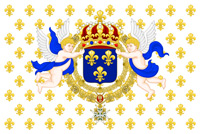 The Kingdom of France is the historiographical name or umbrella term given to various political entities of France in the medieval and early modern period. It was one of the most powerful states in Europe since the High Middle Ages. It was also an early colonial power, with possessions around the world. Colonial conflicts with Great Britain led to the loss of much of its North American holdings by 1763. The Kingdom of France adopted a written constitution in 1791, but the Kingdom was abolished a year later and replaced with the First French Republic. force under Marquis de Montcalm allowing British
The Kingdom of France is the historiographical name or umbrella term given to various political entities of France in the medieval and early modern period. It was one of the most powerful states in Europe since the High Middle Ages. It was also an early colonial power, with possessions around the world. Colonial conflicts with Great Britain led to the loss of much of its North American holdings by 1763. The Kingdom of France adopted a written constitution in 1791, but the Kingdom was abolished a year later and replaced with the First French Republic. force under Marquis de Montcalm allowing British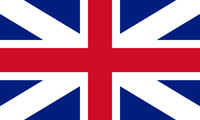 The Kingdom of Great Britain was a sovereign country in Western Europe from 1 May 1707 to the end of 31 December 1800. The state was created by the 1706 Treaty of Union and ratified by the Acts of Union 1707, which united the kingdoms of England (which included Wales) and Scotland to form a single kingdom encompassing the whole island of Great Britain and its outlying islands, with the exception of the Isle of Man and the Channel Islands. forces to capture the city. Wolfe was killed at the height of the Battle of the Plains of Abraham due to injuries from three musket balls.
The Kingdom of Great Britain was a sovereign country in Western Europe from 1 May 1707 to the end of 31 December 1800. The state was created by the 1706 Treaty of Union and ratified by the Acts of Union 1707, which united the kingdoms of England (which included Wales) and Scotland to form a single kingdom encompassing the whole island of Great Britain and its outlying islands, with the exception of the Isle of Man and the Channel Islands. forces to capture the city. Wolfe was killed at the height of the Battle of the Plains of Abraham due to injuries from three musket balls.
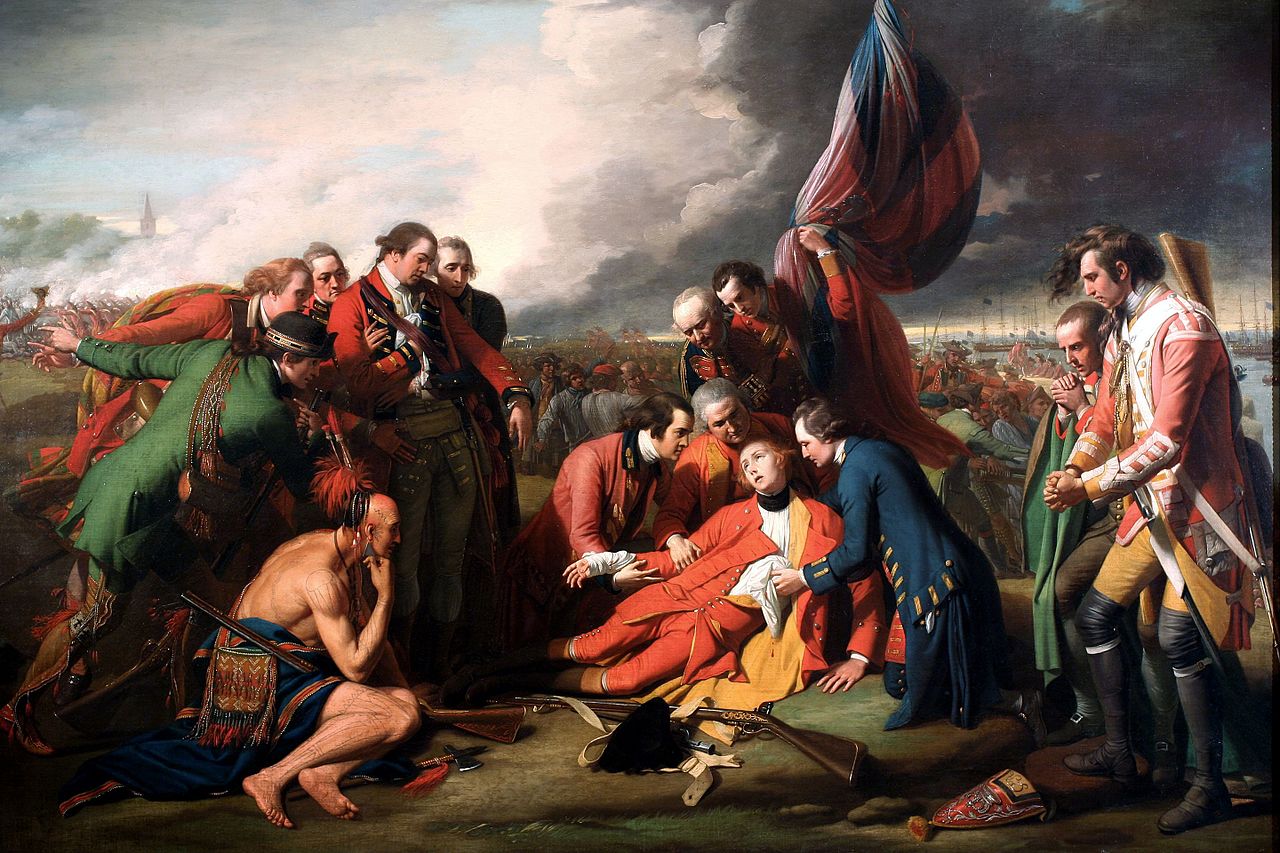
The Death of General Wolfe by Benjamin West

The Death of General Wolfe by Benjamin West
( Click image to enlarge)
Wolfe's part in the taking of Quebec in 1759 earned him posthumous fame, and he became an icon of Britain's victory in the Seven Years War and subsequent territorial expansion. He was depicted in the painting The Death of General Wolfe, which became famous around the world. Wolfe was posthumously dubbed "The Hero of Quebec", "The Conqueror of Quebec", and also "The Conqueror of Canada", since the capture of Quebec led directly to the capture of Montreal, ending French control of the country.
HISTORY
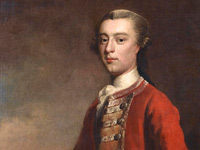
RESOURCES
This article uses material from the Wikipedia article "James Wolfe (1727-1759)", which is released under the Creative Commons Attribution-Share-Alike License 3.0.
© Stories Preschool. All Rights Reserved.
